Saif-ul-Malook – The Complete Tale
Lake Saif-ul-Malook, situated at a height 10, 600 ft at the northern tip of the Kaghan Valley in Pakistan’s Himalayas, is one of the most beautiful places on earth. I have been there twice, the first time as a 12-year old and then in 2009, when I determined to capture some of its magic on camera and on paper, in the words of two local storytellers who relate the legend of the Lake to visitors.
It is the story of a prince and a fairy, Saif-ul-Malook and Badr-ul-Jamal – a story of love, adventure, faith, magic, suffering and betrayal – a story of the multitude of human passions. Many different versions exist, but below is a reproduction of what the storytellers told us, as faithful to their words and mood as possible, with some writer’s liberties. I hope you enjoy it!
“Now listen to me,” he said, and he began.
“I have not seen the Fairy, but I have seen the glory of God.
“Every chowdveen, the 14th night of the lunar month, the Lake is like a mirror, cradling the mountains, the sky, the innumerable twinkling stars, the glowing orb of the moon – so still, so clear, you can scarcely tell between reality and reflection. It is a sight to behold.
“Many a night I have seen lights, floating lights, a thousand floating lights, here on the slope where we sit, and watched them disappear under the rocks.
“I have not seen the Fairy Badr-ul-Jamal, but I have witnessed the glory of God.”
Once upon a time, there lived in Egypt a prince called Saif-ul-Malook. They say that Saif was the handsomest man to walk the earth since Joseph himself – tall and lean, with skin the color of gleaming copper, a clear, noble brow, deep-set dark eyes and black hair that fell in waves to his shoulders. He was brave, a skilled hunter, rider and swordsman, true to his Arabic name – “Sword of the Kings”. Born to riches, Prince Saif had never wanted for anything in his life; there was not a stone, river, man or woman in the kingdom that he could not claim.
Until one night, he had a dream.
A dream that robbed him of his peace of mind and changed the course of his life.
He dreamt of a lake, a lake he had never seen before, surrounded by mountains that seemed to touch the sky and water that shimmered emerald-green in the moonlight. In the lake seven fairies were bathing – ethereal creatures, slim as gazelles, with creamy skins, wide, golden eyes, and hair like rippling ebony – but the seventh among them eclipsed them all in beauty. Her face was as radiant as the full moon, badr, but it was when she laughed, skipping on the water without a care in the world – it was when she laughed that Saif was seized by a joy and a sadness so intense, so inexpressible, that he awoke from his sleep with tears in his eyes. Badr-ul-Jamal…he had never seen anything more beautiful.
The next morning, Saif was visibly troubled.
“Why so crestfallen, son?” asked the king, his father, at breakfast.
“Father,” the young man confided. “I think I am in love.”
The king was overjoyed. “What happy news, son! This calls for a wedding! Who is the favored princess?”
“No princess, father,” Saif replied grimly; then, with a sudden burst of elation: “She is a Queen…A Queen among fairies!”
The king’s face furrowed into a frown as he considered his son’s words. “Saif, you do realize what you are saying? A fairy! She is a bird, a creature cast of fire, naari. So how can a human being, an earthbound mortal like you, ever hope to possess her?” He shook his head vehemently. “It is impossible. Abandon the idea at once. It will bring you nothing but misery,” he foresaw.
But it was no use. It was too late for discussion, for persuasion and advice. Saif’s heart was already on fire. He begged his father’s permission to set out and look for that magical lake where the fairies bathed, in the hopes of finding their Queen. With a heavy heart, the king consented, blessed him on his quest, and watched his only son ride away into the desert.
For six long years Prince Saif searched, roaming every corner of Egypt, from Alexandria to Sinai. Begging on the streets, his hair in his eyes, his shoes in tatters, consumed by love, people no longer recognized him.”There he goes, the madman!” they cried. “There goes the madman, the majnun, who looks for a lake the color of emeralds and mountains of pure white! Who ever heard of such a place?” And they laughed and pushed him out of town.
One day, as he wandered about the outskirts of Cairo, Saif saw a holy man, a buzurg, sitting under the shade of a lone olive tree. “Perhaps this holy man can help me,” Saif thought. As he approached him, the old man looked up expectantly.
“Ah, there you are,” the old man said, a smile playing on his lips. “I’ve been waiting for you, Prince Saif.”
Prince! No one had addressed him thus in years. But before Saif had the chance to express his surprise or explain his predicament, the buzurg dug a hand into the bountiful folds of his cloak and produced an old, battered round sheepskin cap, frayed and thinned with what seemed like centuries of use. Placing it in Saif’s hands, the holy man said, looking at him with keen eyes, “You have been through a lot, my son. But the important thing is that you don’t give up – nothing valuable is won without a struggle.”
Saif toyed with the cap in his hands. “Thank you,” he said hesitatingly. “But what am I supposed to do with this?”
The old man chuckled. “Why, what do you think? Put it on!”
Puzzled, Prince Saif gingerly placed the old cap on his head. What happened next cannot be described, only experienced by the wearer of a Suleimani topi, Solomon’s fabled magic cap, which has the power to transport its wearer to any place he or she desires in a matter of seconds.
There was a gust of wind, and Saif felt the earth give away under his feet. Suddenly, he was shooting through the sky in a fantastic flurry of faces, places, colors and memories, a deafening rumble in his ears; and then, just as suddenly, his feet were firmly planted again on the earth. When he opened his eyes, this is what he saw.
It was the Lake – emerald-green, calm as a mirror, ringed by rugged snow-capped peaks – the very one from his dream. Saif’s joy was uncontrollable. “I shall find her, I shall find her here!” he cried, jumping up and down like a child. “My suffering is finally over!”
In his excitement, he had forgotten about how he had been transported to the Lake in the first place – courtesy the jinn of Solomon’s cap, who was at this moment standing behind him in human form. The jinn cleared his throat. “Ahem, Prince Saif…there is one thing.”
Saif turned around with a start. “What…?” he said slowly, peering at the jinn.
“You will not be able to see the Fairy Queen Badr Jamal. She is, like us, naari, borne of fire, hence invisible to the human eye in her true form.”
“So, what must I do to see her?” Saif asked impatiently.
“You may pray,” the jinn replied. “Pray for forty consecutive days – the chilla – without food, drink or sleep, without moving from the circle wherein you sit. Then, and only then, will you be able to see the Fairy Badr Jamal.” With these somber words, the jinn vanished.
It sounded impossible. Only saints and prophets like Jesus, Moses and Muhammad, and later on Baba Farid Ganj Shakkar and Hafiz of Shiraz, had been known to perform a chilla to completion – others either died or lost their senses in the attempt.
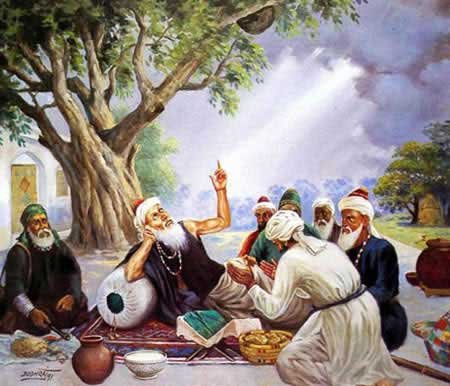
But Saif was not about to be thwarted from his objective so close to the end. “I’ve looked for her for six years, wandering the streets of Egypt with nothing but a kashkol, a begging bowl. Surely I can endure another forty days?”
So, drawing a circle of pebbles on the southern shore of the Lake, he seated himself inside, closed his eyes, and began to pray. He prayed, and prayed, and prayed, and as the suns went down and the moons came up, Saif grew a little weaker, his face thinner, his pain stronger, his yearning deeper. He lost count of the days, and awaited each night with the hope – “Perhaps I will see her tonight?”
But Badr Jamal did not appear. One night, as the sun cast its dying amber rays on the Himalayan slopes and twilight crept into the sky, Prince Saif sat in his circle wondering if he would live to see another day. Physically exhausted, his body was about to give up the struggle, but his mind had never felt sharper, calmer.
It was also a chowdveen ki raat – the 14th of the lunar month, or night of a full moon. The sight of that perfect silver orb glowing in the dark velvety sky, enveloping the Lake, the mountains and the Prince himself in its ethereal light, filled Saif’s heart with peace. “If I were to die here tonight, if my soul were to leave my body tonight, I would be happy man.”
Suddenly, a sound reached his ears – like the fluttering of a great flock of birds, far away at first, then closer – intermingled with a delicate tinkling, like the chime of a thousand tiny bells. Saif looked up; a great white cloud was moving from the west towards the Lake.
-
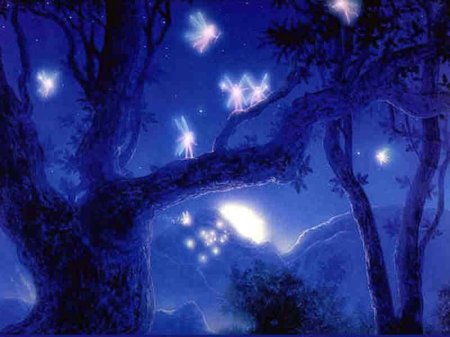
The Seven Fairies arrive at the Lake
“Perhaps it’s the Angels of Death, come to take me home!” Saif thought.
But they were not angels, because Prince Saif-ul-Malook was not destined to die that night. That chowdveen ki raat, Saif became one of the handful of human beings to ever complete a chilla, and one of the rarer still to set eyes on the mythical Fairies of Koh Kaaf, the Caucasus Mountains, that magical land that lay at the border of Asia and the savage West. The Fairies flew to the Lake every full moon to bathe, and their Queen was Badr-ul-Jamal.
The white cloud slowly descended at the shore of the Lake, and seven forms emerged – seven beatific creatures, fair-limbed, dark-haired, golden-eyed, with large gossamer wings on their backs that glittered in the moonlight. Saif was dumbstruck. An invisible force propelled him to his feet and he ran behind some large boulders, from where he could observe without being seen. His mouth agape with wonder, he watched as the seven Fairies laughingly doffed their wings, folded them neatly on ground, and dived into the deep, shimmering waters of the Lake.
And then he saw her – Badr Jamal. She was the last to enter the Lake, gliding through the water with her long black hair spread out behind her, her face radiant as the full moon, her eyes twinkling like a child’s. She was the most beautiful creature he had ever set eyes on. Prince Saif felt like he would faint from rapture. The object of his quest, of six years and forty days of tortuous struggle, was right there in plain sight; a living, breathing, palpable creature!
We don’t know long Saif stayed behind that boulder, guiltily spying on the fairies; for him, it was only a few minutes before the fairies began to emerge from the water and don their wings. They were getting ready to leave! Panicking, he summoned the jinn of the Suleimani cap.
“Friend, what shall I do?” he beseeched the jinn. “If I confront Badr Jamal now, she and her cohorts will be sure to take off in fright, ruining my chances forever. How do I stop her from leaving?”
The jinn nodded his head sympathetically, and said in reassuring tones, “Worry not, master. Leave it to me.” With that, he vanished into the air whence he had come.
Unseen to Prince Saif and the fairies, the jinn stealthily crept up to the spot where the fairies had placed their folded wings and whisked away the largest, most iridescent pair of them all – Badr Jamal’s. Soon, Badr Jamal arose from the depths, the last of the group, to prepare herself for the return journey.
“Has anyone seen my wings?” she asked after a few moments, looking around anxiously.
“You put them right here, next to mine,” said one of her friends, pointing to a large rock by the shore.
“They’re gone! My wings are gone!” Badr Jamal was in utter distress. “Oh, what will I do? How will I fly back to Koh Kaaf? What will he say?”
Her friends were dressed and ready to leave. What would he say indeed! It was past midnight, and they were already late. He would be in a foul mood, heavily pacing the corridors of the castle, a scowl on his gigantic face, thundering like a black cloud – their master Deo Safed, the White Ogre. They had to go back, now.
Glancing at each other nervously, the fairies whispered, “There’s some mischief afoot here, surely. Some magic, some trap. We best be on our way, lest we are all ensnared.” And while Badr was still frantically searching for her wings, her back towards them, the fairies abruptly took flight, and in one unanimous flutter, they were gone.
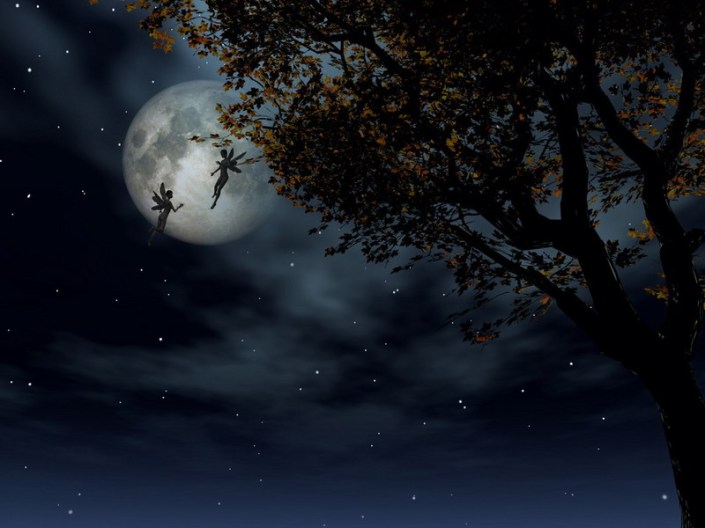
“My friends, don’t leave me here alone!” Badr Jamal cried, her hands imploring the sky. But there was nothing there. All was silent, except for the gentle lapping of the water against the shore. She was alone.
The Fairy Queen sunk down to the ground, face buried in her hands. How cold she felt, suddenly! How enormous the sky seemed, and her favorite lake so menacing, so suspicious.
All at once, she heard a sound – a shuffling of feet. She looked up, alert. It was Prince Saif. Standing right before her.
“You…” she said slowly, staring at him with her wide golden eyes. “You...”
“Please, don’t be afraid,” he spoke hurriedly, gently advancing towards her. “I’m not going to hurt you. It was I who stole your wings, but please, let me explain…”
And the whole story came tumbling out – the dream, the old buzurg, his father the king, the Suleimani topi, the six year-long quest that had brought him from Egypt to the Himalayas… he didn’t dare look at Badr Jamal in the face, for he was weak from his penance, the chilla, and would not be able to stand the splendor of her beauty.
She was still staring at him, a look of disbelief on her lovely face. Finally, she spoke:
“Prince Saif, you were not the only one who dreamt a dream.”
Saif glanced up in astonishment, and their eyes met for the first time. Badr Jamal smiled. “I never thought I’d see you. I didn’t think you were real…”
A moment later Badr was in his arms. Words cannot describe the joy and the peace that flooded over them as they embraced each other.
“My sweet love, after all these years…” Saif whispered as he stroked Badr’s hair, holding her tightly. “We can finally be together!”
Badr Jamal suddenly drew back, as if she had just remembered something. “What’s the matter, my love?” Saif asked with concern.
She looked at him with a certain decisiveness, a certain resignation. “No. I can’t stay here. I must go. I love you, Prince Saif, but I must go. Please return me my wings. I will try to come back. But right now, I must return to Koh Kaaf.”
“Let you go?” Prince Saif repeated, his voice hollow. He grabbed her wrist. “You think I would do that? After begging, searching, praying, struggling for so long? That I would give you up?” With a strange, violent laugh, he shouted to the sky, “Never!”
“But you don’t understand!” Badr Jamal fell to her knees, distraught. “He’ll kill us, he’ll kill us both! My master, Deo Safed. When my friends return and he finds me missing, he will come looking for me. He’s very powerful! And when he sees us together, he will kill us both. Instantly.”
She looked up at him, her eyes brimming with tears. “So you see, you have to let me go…”
Prince Saif took Badr by the shoulders. “Let him come,” he announced. “I am not afraid of him. Let him do what he dare. I am never parting with you.” He held her close, his face resolute, his heart beating with terror at what was to follow. Covering Badr Jamal in his cloak, Prince Saif fled with her down the Valley. There, in a graveyard at the edge of the town of Naran, among shadows and secrets and silent tombstones, the couple hid for the night.
Meanwhile, 1, 600 miles away, in his castle in the Caucasus Mountains of present-day Turkey, Deo Safed was in a rage. “Where is Badr Jamal?” he bellowed. “Where is she?”
The walls shook, the glass windows rattled, and the six fairies huddled together in fear. “We don’t know, master,” one of them ventured, her voice trembling. “When we came out of the water from our bath, she wasn’t there.”
“Perhaps she drowned…” another suggested tremulously. They could not tell him they had left her there, unprotected, vulnerable. He would kill them.
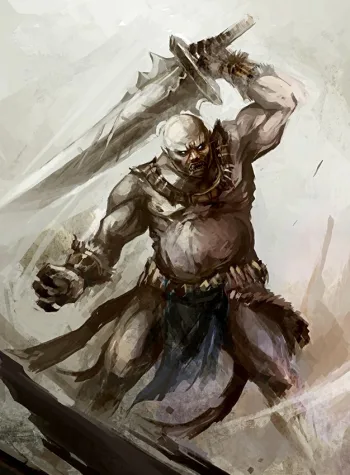
He was a frightful creature, Deo Safed – tall as a mountain, white all over like snow, and the earth shuddered when he walked.
“Well, we’ll soon find out!” He stormed out of the palace, club in hand, heading east to the Himalayas.
Deo Safed adored Badr Jamal. He didn’t care about the others, the sniveling lot of them – she was special. He couldn’t forget, how he’d fallen madly in love with her ten years ago, when she was just a child, playing happily in the woods of Paristan, the Land of the Fairies; how he had kidnapped her and brought her to his lair, this vast stone fortress in Koh Kaaf, which was protected by such powerful magic, such fearsome beasts, that even her father, the King of Paristan, had been unable to penetrate it. He would never have let her out of his sight if he had had his way; but how could he refuse her the simple pleasure of bathing with her friends at her favorite lake twice a month? How could he deny her this one innocent request? Oh Badr, my moon, my joy, how could you abandon me so? How could you? How dare you…he gnashed his teeth, seething with anger, and with enormous bounding steps hurtled over the mountains towards Kaghan Valley.
When Deo Safed reached the Lake, there was no one in sight. “Badr, Badr!” he roared.
“Badr, Badr, Badr…” the mountains mocked his terrible cries. Malika Parbat, the loftiest peak in the Kaghan Valley, towered silently above, her white slopes gleaming in the cold moonlight. “She’s gone, Deo Safed, she’s gone”, the Queen of the Mountains seemed to say to him. “Tonight you receive your just deserts.”
Deo Safed became desperate. Could it be? Was Badr Jamal truly lost? Did the Lake consume her, then, sucking her into its bottomless belly like a jealous monster, like he himself had done so many years ago?
There was only one way to find out.
Deo Safed struck one gigantic foot on the southwestern shore of the Lake. There was a dull moan, deep in the bowels of the earth; like a beast awakening, the ground heaved, shuddered, and ripped open where the ogre had stamped his foot. The serene waters of the Lake began to churn and froth, tumbling out from the crevice in torrents of emerald and blue. Deo Safed had released the Spirit of the Lake.
As the waves went crashing down to the Valley below, Deo Safed stood, in the eye of the storm, rocks and trees and water hurtling over him. “I’ll find her! Even if she is dead, a corpse at the bottom of this accursed bottomless lake, I will find her!” The water did not stop. It was the first great Flood of Kaghan.
Meanwhile, in the little cemetery on the outskirts of Naran town, Prince Saif and Badr Jamal had just fallen asleep under the shelter of a beautiful old deodar tree.
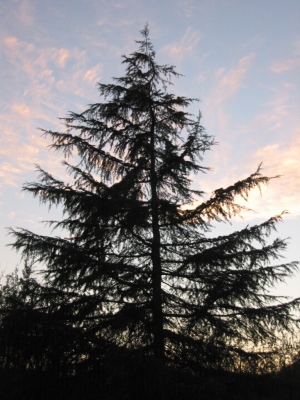
Suddenly, a tremendous thundering reached their ears, mingled with a hideous, inhuman wailing.
“He’s here!” Badr gasped, jolting out of her slumber. Her face was blanched.
For ten long years, Badr Jamal had been a slave, a prisoner of this monster, Deo Safed. For ten long years, she had not known family, or friendship, or love – only fear, and whispers, and unspoken dreams, the charade of loving a creature whom she reviled from the depths of her heart. He had tried to win her love, the ogre, using all manner of stratagems – fine clothes and jewelry, delicious, exotic foods, marvelous animals of all colors and shapes and sizes, a host of young fairies to attend upon her every wish.
But Badr Jamal was not free. And there was no pleasure in anything, not priceless jewels or the choicest morsel of food, if she was not free. Now, this moment, was the closest chance she had ever had of escape, a true escape. And yet, anything could happen. She held close to Saif.
Then they saw, in the distance, coming from the direction of Malika Parbat above, the Flood. It was rushing towards them with lightening speed, tearing out trees, submerging sleeping villages, annihilating every thing and creature that lay in its wake. In a matter of seconds, it would reach the cemetery. And that would be the end.
Saif looked at Badr Jamal, and said, shouting over the deafening roar, “This is it, my love. Tonight, we die, or we live. All we can do is pray. So pray with me!” Badr nodded, her face resolute, surrendering finally to whatever Fate had in store. And standing there beneath the sacred cedar, in the shadowy graveyard, on that clear, starlit night, they clasped hands, shut their eyes, and prayed. Saif prayed to God, and Badr to her gods, each with equal fervor. The roar of the flood was getting closer, and closer, until it seemed like it was over their heads, then below them, then all around.
“So this is what death feels like,” thought Saif. “Not as painful as I’d imagined.”
But he wasn’t dead. He could still feel Badr’s warm hand clasped tightly around his. He opened his eyes.
Saif and Badr were standing in a cave, dry as leaves. At Saif’s feet lay the Suleimani cap, which he thought he had forgotten at the Lake and despaired of ever finding. “How?….” Saif’s voice trailed off as he stared at Badr, then at the cap, then around him at the cave.
“Where are we?” Badr looked around in amazement. “How did we get here?” The cave was wide and airy, with a deceptively low mouth, so that they had to crawl to get out. Once outside, they saw that they were perched on a mountain high above the cemetery, which was by now completely inundated. Tombstones, rocks and fallen trees floated around in grim silence. The Flood had passed. They were alive. They were safe. God, and the gods, had listened.
But what about Deo Safed? Where was he, the great White Ogre whose fury had precipitated a Flood? He wasn’t at the Lake anymore. He wasn’t even in Kaghan Valley. No, he was well on his way to his final resting place – Deosai, Land of the Giants, in Baltistan, where all giants were born, and where each one of them went to die.

For Deo Safed had lost the will to live. Badr Jamal hadn’t drowned in the Lake. She had run away. Run away, from him. All these years, he had believed, he had convinced himself that she loved him. That she returned, to some degree, his ardent adoration for her.
The truth was, he couldn’t live without her; nor could he live with the knowledge that she had betrayed him. He had lost. He was defeated, broken.
In Deosai there was peace. There, at the confluence of two of the greatest mountain ranges in the world, the Himalayas and the Karakoram, in the vast, unending plains of his birth, he went, and lay down, and died. His massive body crumbled, killed by unhappiness, till there was nothing left but a mound of earth, and slowly, nothing at all. He wept the whole way there, and his large, heavy teardrops trickled down the slopes in sad streams, accumulating at a meadow in Kaghan Valley to form Ansoo Lake – “Teardrop Lake” – a lasting memorial to his undying love for Badr Jamal.
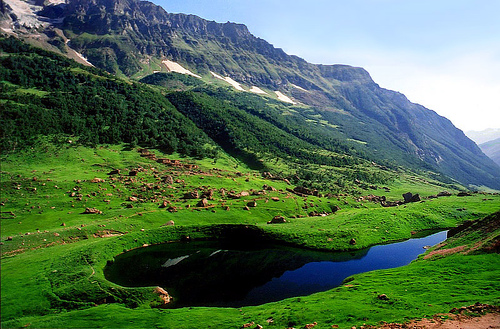
Back in Naran, Prince Saif and Badr Jamal were in ecstasies. They couldn’t believe that the struggle was over, that they had survived, that Saif’s quest was complete, that Badr was free, that they were together. Taking the beautiful fairy’s hand, Saif looked into her luminous, moonlike face, and smiled, “Let’s go home, my Queen”. He summoned his trusty friend, the jinn of the Suleimani cap, and in the twinkling of an eye, the couple was 2, 500 miles away, at the gates of Prince Saif’s palace in Egypt.
The news of the Prince’s return after almost seven years, and that too, with a bride, was the cause of much celebration throughout the kingdom. The King and Queen, Prince Saif’s parents, were beside themselves with joy, and wedding preparations were underway immediately. Soon, the couple were married, in a spectacular, sumptuous ceremony, with feasting and festivities lasting for many days.
One could end the story here, with “And then they lived happily ever after”… but that didn’t happen. Not just yet!
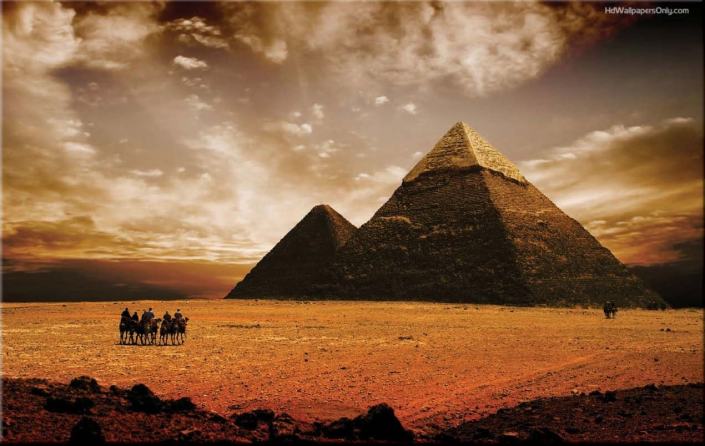
Now, once the marriage and initial hullaballoo about Prince Saif’s return to Egypt – with a Fairy Queen on his arm – were over, Saif was eager to settle down to a ‘normal’ life, the kind he had known before embarking upon the mad quest for Badr Jamal some six-odd years ago.
His responsibilities as Crown Prince were many – attending public audiences with his father the King, listening to people’s grievances and advising just solutions, traveling to all corners of the kingdom, sometimes in disguise, to ensure that governors, ministers and other official functionaries were doing their job, negotiating with ambassadors and entertaining visiting dignitaries from the great kingdoms of China or India. Prince Saif’s father was growing old, and soon the mantle of rulership would pass on to Saif; much valuable grooming time had already been lost, so the King was in a hurry to teach his son everything he possibly could before Death came knocking on his chamber door.
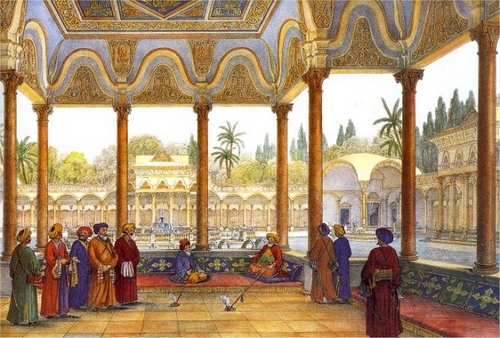
As it happened, Prince Saif was away from the Royal Palace most of the day. Badr, meanwhile, stayed at home; for it was not customary in those times for princesses to gallivan about the kingdom with their husbands, hunting leopard or swigging wine with Italian dignitaries.
Domestic confinement was just one of the ‘rules’ that Badr had to adhere to in her new life as wife of the Crown Prince. On the very night of their wedding, Saif had said to her, “Badr, my dear, now that we are here, in my country, and you are soon to be Queen, surely you have no more need of your Fairy wings?”
“Why? Why do you say that?” Badr had responded defensively. “I’m a Fairy, of course I need my wings!”
“I know, my love, I know. I just feel that it will be easier for you to fit in here if you don’t go around with those monstrous appendages on your back,” Saif had reasoned. “I mean, it unnerves people. Especially my mother! You know how jittery she gets in your presence.”
Seeing that Badr was recalcitrant, Saif had tried again, in his most conciliatory tones. “Look, all I’m asking is that you keep the wings away. Can you do that for me? Besides, you might get it into your head to fly back to Koh Kaaf, or even Paristan one day! I can’t risk that now, can I?”
He had meant it as a joke, but Badr Jamal did not find the Prince’s comment remotely funny. It was as if to say that Saif did not trust her; that he considered her fickle, an unruly child who had to be disciplined and placated. However, she said nothing of this to him, and merely nodded. “Yes, of course, my Prince. Anything you say.”
And so, some months passed. While Saif was busy dispensing his princely duties, Badr would be attending balls and garden parties arranged by her mother-in-law the Queen, dressed in voluminous, human-style gowns, with her hair elaborately braided and coiffed in the human fashion, and her feet bound in jeweled sandals. She found these ladies’ functions excruciatingly boring – all they talked about was their children, their servants, the latest import of silks from China, the best way to prepare stuffed pigeon. Badr had no knowledge of these subjects, nor was she interested – she would have preferred to sing rather than talk, dance rather than walk, wear the least amount of layers the weather permitted, and let her hair fly loose in the wind. As for fancy foods, the meal she liked best was a hearty chunk of game venison (preferably raw), with a side of wild herbs, downed with good, strong grape liqueur.
This predilection for bloody meat was another one of the Fairy Queen’s seemingly uncivilized idiosyncrasies that Saif was nervously learning about since their marriage. Yet another was bathing under the full moon in the nude, in the closest available water body – which meant the fountain in the central Palace courtyard. At this Saif had to put his foot down – his people were not ready, he said, to accept that kind of free-spirited behavior from their future Queen.
But the venison was an essential part of Badr’s natural diet. She could not do without it. Supplies were running low, and Saif was pressed to make an urgent trip to the southern woodlands to procure the next batch, under the guise of a sport hunting expedition. Venison was not commonly eaten in Egypt, and the Prince’s unplanned excursion would arouse suspicion if its true purpose were known.
While Saif was away, his uncle and aunt came to visit the Palace, along with their three daughters, Saif’s cousins. The family had been traveling in Asia for several months and thus had missed the royal wedding. They came now to offer their presents and felicitations to the happy couple; and to see for themselves this mysterious Fairy that Saif had brought back with him from the Himalayas.
The eldest of the three cousins, Safiyya, was particularly curious about Badr – you see, she had hoped to marry Saif herself one day. This young princess was exceptionally beautiful, not to mention exceedingly clever and proud to match. Deep in her heart, she could never forgive Saif for choosing another woman over her; or the other woman for taking what was rightfully hers.
“My dear aunt,” Safiyya said to the Queen, Prince Saif’s mother, as she reclined on a divan in the zenana, the women’s quarters of the Palace. “Where are you hiding this Fairy daughter-in-law of yours? My heart is burning to see this piece of moonlight!”
Just at that moment, Badr entered the hall from a side door.
“I am Badr,” the Fairy announced.
Safiyya, her sisters and mother turned their heads towards the commanding voice, and saw standing before them a tall, plain-looking girl. Her black hair was tied back in a severe bun, her skin was sallow, her eyes colorless and cold, and the rich robes she wore hung awkwardly over her thin frame.
The contrast with Safiyya – petite and amply figured, with a rosy complexion, glossy brown curls, dark, mischievous eyes set in a heart-shaped face and a vivacious laugh – could not have been greater.
“You?” Safiyya stared at Badr in disbelief. “You are the Fairy Queen Badr Jamal? Pardon my impertinence, Aunt,” she smirked, “but a peasant in princess’s garb is a peasant nonetheless!” Everybody laughed, including the courtly ladies and servant girls present.
Badr’s cheeks flushed crimson, and the Queen looked visibly uncomfortable. “Princess Safiyya,” Badr spoke in a restrained tone, “you speak in this ignorant fashion because you have not yet seen my true beauty.”
“Oh, is that so? Then where is your true beauty?” Safiyya taunted. “Locked away in a trunk?” Again, everybody laughed, except Badr and the Queen.
“As a matter of fact, yes. It is locked away in a trunk,” Badr replied. “Queen Mother, if you please, bring me my wings.”
The Queen stuttered nervously. “Oh no, Badr, no, you know I can’t…You know Saif has forbidden you to…”
“It doesn’t matter what Saif has forbidden her to do or not,” Safiyya interjected. “He isn’t here right now. Aunt, please bring the wings, her ‘true beauty’ or whatever she calls them. Let us see what the fuss is about once and for all!”
The Queen had no choice but to comply. While she went to fetch the wings, word spread through the Palace that the Fairy Badr Jamal was about to demonstrate her flying ability. Nobody had ever seen a Fairy in flight before, and the excitement produced by this news was so great that by the time the Queen returned with the wings, folded and wrapped in layers of muslin, the women’s hall was packed. Everybody wanted to witness the spectacle of a flying Fairy.
“I don’t think this is a good idea, Safiyya,” the Queen whispered to her niece. “What if she flies away? What if she escapes?”
“How will she escape, aunt? We’ve bolted all the doors, barred all the windows. Besides, we don’t even know if she can fly at all!” Safiyya smirked again, confident in her triumphant beauty and full of ill will for Badr.
Badr stood on a raised platform at the end of the hall. The Queen handed her the parcel. She held it for a few moments, and then said: “Now listen to me, one an all!”
The clamor in the hall dropped to a hushed murmur.
“What you are about to see you have never seen before, and most likely will never see again. I don’t know how many of you can even withstand it. So let me say that I do not do this of my own will, but out of compulsion” – Badr shot an icy look at Safiyya – “to defend my own honor, as none here will do it for me.”
With that, Badr unwrapped the muslin parcel. The moment her fingers touched the misty, gauze-like material that lay folded inside, the dormant wings sprung to life; like a firecracker, they whizzed and whooshed through the air in circles before swiftly fastening themselves to Badr’s back.
What happened next is difficult to describe. The women and children who witnessed it could not stop raving about it till the end of their days, and the memory of what they saw passed onto legend. For, as soon as Badr’s wings attached themselves to her back, a blinding light burst forth from her person. The bulky dress she was wearing fell to the ground in a heap, the innumerable pins in her hair sprang out, her tight sandals came flying off.
And there she was, the Fairy Queen Badr-ul-Jamal, free, hovering above their dumbfounded faces in a dazzling halo of light. Her face glowed white like the moon, framed by clouds of black hair that shone like the midnight sky. Her golden eyes flashed like the rays of a rising sun, and every movement of her long, slender limbs bespoke grace, as though she were swimming through the air, through the flowing, translucent garment that draped her body.
And her wings? They were like living creatures in their own right, two iridescent chimeras filigreed with the brightest of silver, radiating all the colors of the universe.
She was mesmerizing. She was unreal. She was the most beautiful sight that they had ever seen, and would ever see.
“Now, you all have seen me, in my true form, my true beauty.” Even Badr’s voice had changed. It was more powerful, more melodic. “But I know that you do not deserve me. Neither you, nor Prince Saif. You judged me for my beauty, my uniqueness, and bade me hide it; then you judged me for my lack of it.”
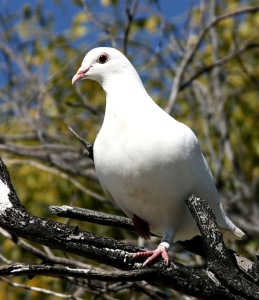
General commotion followed. There were shouts and gasps, and people jostling each other to get closer to the Fairy Queen. But before anybody realized what was going on, Badr transformed herself into a white dove and flew straight out of the hall through a tiny crack in the roshandan, a small skylight in the corner of the ceiling that had somehow escaped attention.
And just like that, she was gone.
Now, you may wonder, what was Prince Saif up to at the moment Badr Jamal made her escape from the Palace in the shape of a white dove?
In fact, he was resting beneath the shade of an ebony tree deep in the woodlands of Nubia, after a fruitful but exhausting deer hunt. Eyes half-closed, stretched out on the soft green grass, he was thinking sweet thoughts about his beloved Fairy Queen, when a white dove came and alighted on a branch above him. It seemed to Saif that she was the prettiest dove he had ever seen – even though he didn’t consider himself a “bird person” – and he was suddenly possessed by a desire to capture her.
“She’d make a nice little pet for my beautiful Badr,” he mused. So, he quietly got to his feet, picked up a net that lay amongst his hunting paraphernalia, and flung it over the bird.
But the net, as if repelled by an invisible force, bounced straight back at him, while the dove sat merrily on her perch unperturbed. Saif tried a second time to ensnare the bird, then a third, with the same perplexing result.
Then – and Saif could hardly believe his eyes or his ears, though he had witnessed his fair share of fantastic events – the dove turned her soft white head towards the Prince and spoke to him, in a voice he could recognize among millions: “Your attempts to capture me are in vain, Prince Saif. You can never own me. You can never possess me.”
It was Badr Jamal, of course.
“The only way to convince me of your love,” the bird continued, “the only way you will truly earn my love, is if you follow me to Paristan, my homeland. If you succeed in this, if you are able to brave the journey and seek me out in my father’s castle, among my own kind, I promise I will come back with you, as your wife and partner in life. And I will never leave your side till as long as you live.”
With these words, Badr Jamal fluttered her snowy white wings and was off, leaving Saif in a state of utter discombobulation. On his return to Egypt, one look at his mother’s swollen red eyes and the funereal aspect of the Palace confirmed Saif’s worst suspicions – Badr Jamal, the love of his life, the light of his eyes, the object of seven years of struggle and devotion, was gone.
What had happened in his absence? Why? How? All that was irrelevant. He knew what he had to do. “Mother, please tell one of the servants to saddle up a good, strong horse and prepare me a travel bag, with enough provisions to last about a month. I’m leaving right away.”
“But, Saif!” his mother pleaded. “Don’t you see? Badr Jamal doesn’t want to be here! Let her go, Saif. She is happier with her own kind. Please, just forget about her! There is no dearth of beautiful ladies here in Egypt. Think, Saif, destiny has afforded you a second chance at a happy, normal life. Don’t gamble it away for an illusion, for a fantasy, my son! Don’t you let this madness get the better of you!”
However, as before, the Queen Mother’s weeping, wailing and emotional threats had no effect on Prince Saif’s resolve. He was an obstinate fellow, and he truly did love Badr. Just as he had found his way to the magical lake in Kaghan Valley, just as he had completed the 40-day penitence, the chilla, and escaped from the Ogre and the Flood with Badr in his arms, so he would bring her back from the deepest, darkest dungeons of Paristan if he had to.
“I’m sorry, Mother,” he embraced the Queen one final time before mounting his ride. “But I can’t give up yet – nothing valuable is won without a struggle.” Kicking the horse into a gallop, Prince Saif rode away from the Palace a second time, without looking back.
Now, Prince Saif didn’t really know where Paristan was, or whether it even existed. Legends placed the kingdom of the fairies “east of Egypt”, somewhere on the mountainous border of Persia and India – and the directions stopped there.
So, he traveled east for several months, crossing Sinai, the fabled rivers Tigris and Euphrates, the Great Salt Desert of Persia, the Suleiman Mountains, stopping time to time at some shepherd’s hut or sarai, a highway inn, to rest and refresh his supplies. Many times he cursed himself for forgetting to carry his Sulemani topi, the magic cap bequeathed to him by the old buzurg during his first quest, which had the power to transport its wearer to any place on earth in the twinkling of an eye. “I suppose I’m not allowed any shortcuts this time,” he grumbled.
At length, Saif reached Peshawar, a bustling frontier town and the historic gateway to the Indian subcontinent. Merchants from all corners of the Silk Route thronged its narrow streets, hawking their varied wares in loud voices – silk, cashmere, cotton, spices, dry fruit, wine, carpets, woodwork, decorative objects of marble, ivory and jade, gemstones, weapons, secrets and stories – there was nothing you could not find in the legendary markets of Peshawar.
Meandering through the bazaar while his horse rested in the city’s stables, Prince Saif stopped at a chai khana, a tea shop, for a cup of the traditional Peshawari kahwa, hot green tea sweetened with honey or sugar and spiced with cardamom. Looking around the crowded little shop for a place to sit, he spotted an empty stool next to an old man with a flowing white beard, who sat sipping his tea and fingering a rosary.
Prince Saif walked up to the old man, saluted him with a respectful bow, and said, “Venerable sir, would you be so kind as to allow this weary traveller to seat himself beside you?”

The old man looked up at Saif. Their eyes met, and Saif had the sensation that he knew him from somewhere before; that this was not a chance encounter.
“My son!” the old man smiled, eyes crinkling at the corners. “Please, it would be my honor.”
“And now, tell me,” he continued, once Saif had made himself comfortable and placed his order, “what brings a gentleman like yourself to this wily merchant’s city?”
Quickly, Prince Saif related to his new friend the objective of his journey: to reach the mythical land of Paristan (which, according to legend, lay somewhere in these parts), and recover his beloved Fairy Queen and true wife, Badr Jamal.
“Paristan? My dear lad!”, the old man let out a bemused chortle. “You know the reason why they call it a ‘mythical’ land? Because Paristan has no physical existence! You will not find it on any map, you will not see any signboards pointing the way, no gates or city walls to saunter through. On the whole, it is entirely impossible for you to reach there in your present state.”
Seeing Prince Saif’s face fall in despair at this rude reality check, the old man hurried to add: “Oh, but don’t look so glum! The good news is that I can help you. Or, at least I have some things that could help you…” He started rummaging through the coarse jute sack he carried, and duly produced a tattered woolen cloak and a short wooden staff.
Saif was overcome by déjà vu. “I’m sorry, sir,” he interrupted. “But I feel like we’ve met before. Were you ever in Egypt some years back?”
“Nonsense, son! I’ve never set foot outside the city of Peshawar,” the old man hastily brushed aside the question. “Now, listen to me carefully – for although I have not traveled much, I have learnt a great deal in the long journey of my life, observing and talking to the people that pass through this city. And what I tell you now may well be the only hope you have of reaching Paristan and seeing your wife again…”
It was true. Once more, a nameless old buzurg was to be Prince Saif’s savior.
A few hours later, Prince Saif found himself riding with a caravan of merchants towards Tattoo, a small village in the kingdom of Gilgit, perched on the craggy slopes of the magnificent Karakoram mountains. The merchants, heading for China via the Khunjerab Pass, had agreed to drop Saif off at the village in exchange for his horse, a handsome Arabian steed that would fetch a weighty price in the horse fairs of the Mongolian steppe.
Saif parted with the animal with a heavy heart, but he actually had no further use for it. His real destination was 23 miles further off Tattoo, where no horse or mule tracks led; a place called Joot, today famous by its English appellation, Fairy Meadows.
“I have never been to Joot, but I hear tell that it is a most breathtaking place,” the old man at the tea shop had recounted. “They say that a Fairy King of great power established his kingdom there, some 1,000 years ago, in the shadow of that fearsome peak Nanga Parbat, the Naked Mountain.
“Nobody lives in Joot. The locals are wary of venturing there at all because of all the stories; shepherds who went to graze their flocks and never returned; explorers, bandits, naturalists and mystics, attracted to the place by its beauty and its solitude, and never seen again. It is enchanted, they say, the abode of witches and jinns, as perilous as it is beautiful.
“This is where you must go.”
-
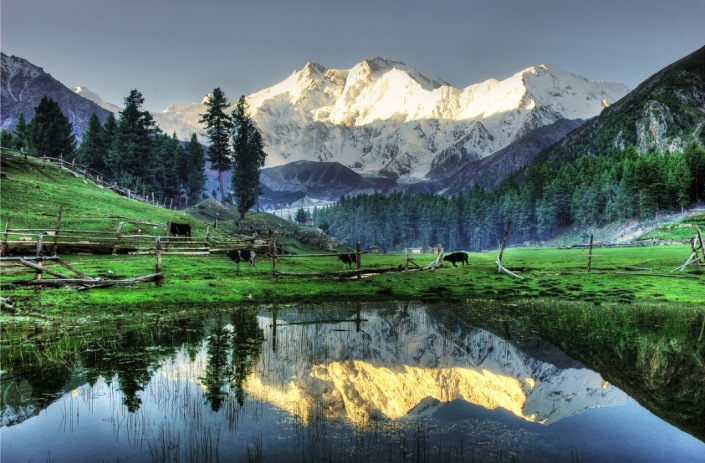
Joot or Fairy Meadows in Pakistan, and the north face of Nanga Parbat, 9th highest mountain in the world
After a grueling uphill hike from Tattoo, Prince Saif arrived at Joot, following the old man’s directions to the letter. He stood in the middle of a vast green meadow, facing the awesome, ice-covered Nanga Parbat. Dusk was approaching, and there was not a soul in sight. All was silent, except for the gentle hum of the evening breeze amongst the pines.
Saif pulled out from his satchel the tattered woolen cloak. “Once you don this cloak,” the old man had explained, “everything around you that is made from the hands of men will dissolve from view. Buildings, roads, entire cities, will simply vanish.
“And everything that was hitherto unseen – the realm of jinns and fairies, and all other manner of supernatural creatures – will suddenly come to light. Meanwhile, you yourself will be rendered invisible to all.”
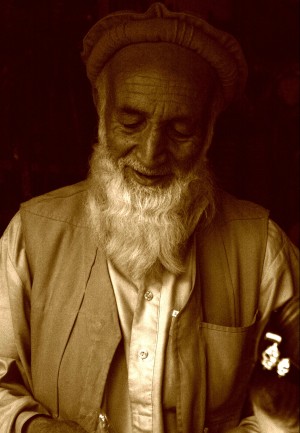
As for the wooden staff, the old man had said he had bought it from a wandering Jewish mendicant, who claimed that the staff contained a tiny fragment of the miraculous staff of Moses. Placed in the right hands, it had the power to unlock or open any kind of barrier – gates, doors, chains – both magical and mundane.
Standing before that gigantic mountain in the grassy fields of Joot, the very location of Paristan, all that was left for Saif to do was throw on the cloak, brandish the staff, and smash his way into the Fairy King’s castle to recover his bride.
But Saif hesitated. What if all of this was a lie? What if the old man had tricked him? And now, there he was, alone in that desolate spot with no food, no shelter, no money, not even his horse to help him retrace his steps and make the long journey home…
By this time it was almost completely dark. A silver slipper of a moon had begun to glimmer above the jagged peaks of the Karakoram. “Well, I don’t really have another plan, so I might as well give this a shot,” Saif thought. Taking a deep breath, he grasped the wooden staff and wrapped the woolen cloak around him…
What did he see? Sometimes, there are sights so wondrous, events so singular, that they are better left imagined. Let’s just say that the old man in the tea shop had known what he was talking about!

Meanwhile, in Paristan – where Prince Saif had snuck into at that very moment, aided by his invisibility cloak and the magic staff – Badr Jamal felt a deep shiver run through her body. “He’s here…” she murmured. “He’s here! I can feel it! My Prince has come to get me!”
But nobody heard her hysterical cries. For the Fairy Queen was locked away in a tiny cell, with chains around her hands and feet, deep in the dungeons of her father’s castle.
What had happened was this: living away from home for so long, Badr Jamal had forgotten what her father, the king of Paristan, was really like – cruel, cold, and sinfully proud of his race. As she fled from Egypt, Badr’s heart had brimmed with excitement at the thought of returning to Paristan, of being with her family, whom she had not set eyes on for over 10 years.
But the reception she received was far from what she had expected. Her mother had passed away only a few years earlier – at the ripe age of 180 – and without her softening influence, the Fairy King’s behavior had only deteriorated. So that when Badr Jamal showed up at the castle gates – not the innocent child who had disappeared years ago as she played with her friends in the woods, but a tall, beautiful, fully-grown woman – the king her father did not shout, or weep for joy. He did not run to embrace her, or send up a prayer of thanks to the gods.
“Father, it’s me, Badr!” she exclaimed.“I’ve come back, Father!” In reply, the king slanted his eyes and scrunched up his nose in disdain.“You?” he scoffed. “You are not my daughter – for on you I smell the scent of a human. No daughter of mine would dare dishonor her race by lying with a khaki. Be gone!” With that, he ordered the guards to seize her.
“But, father!” Badr Jamal cried as they dragged her away. “You don’t understand! You don’t know what happened!” She tried explaining in a few hurried words the twists her life had taken since the last time they had seen each other – but the king turned his back on her with a swish of his robes and strode off, followed by a retinue of sniggering ministers.
Now, as Badr sat despondently in the dark, damp cell, pondering over her past, she realized she had probably taken Prince Saif’s love for granted; and that it was a pretty rotten thing to do to have abandoned him like that, without explanation. She had inherited some of her father’s accursed pride after all!
And what if Saif never came? What if he didn’t consider it worth his while to risk his life for her a second time? What if she were to languish in this dungeon for the rest of her days?
That’s why Badr Jamal burst into a frenzy when she sensed that Prince Saif had entered the fairy realm. As he navigated the precipitous paths of Paristan on his way to the castle, Badr writhed in torment, screaming as if she had lost her mind. She was making such a racket that the prison guards grew alarmed and ran to notify the king.
The king descended to the dungeon to investigate, followed by his minions. “What is the meaning of this, Badr!” he demanded sternly. “Throwing a tantrum is not the way to plead forgiveness for the shame you have brought upon your family.” Deep in his heart, the King felt a prick of anguish, seeing his lovely daughter reduced to such a tortured state.
But he couldn’t give in. The whole kingdom knew of what Badr had done. The fairy folk were an open-minded lot, but this was one transgression they could absolutely not tolerate. If all their females – or males for that matter – were to make off with human folk, that would mean the end of the fairy race; for it was a known fact that fairy-human unions only produced human children. So if the king did not act firmly in the case of his own daughter, his people would take him for a pushover, a weakling, and lose respect for him.
Now, unbeknownst to the king, the ministers and prison guards, Prince Saif had already infiltrated the castle, unseen under his magic cloak, throwing open all the gates, locks and bolts that lay in his way with a single tap of the Moses staff.
“He’s here, father! He’s here!” Badr suddenly shrieked. “He’s here in this cell as we speak!”
“What are you talking about, girl?” the king replied, annoyed. “That is simply impossible. There is no way that a magic-less man, a mere khaki, can find the portal to Paristan, let alone penetrate the magically protected gates of the city and make his way here to the dungeons undetected.”
“That’s what I tried telling you before, father,” Badr’s anguish was replaced by wide-eyed elation. “Saif is no ordinary man! He possesses a magic far greater than you, or I, or Deo Safed. That is how he freed me from the Deo’s clutches, and that is how he will free me again, here, under your very nose.” As she said these words, the heavy chains that bound Badr’s wrists and ankles sprang open and fell to the ground. Prince Saif, with a good sense of the dramatic, had tapped the chains with his magic staff at just the right moment.
Pandemonium went up in the dungeon.“Look! Look! Badr Jamal is free! But how can it be?”
The king could not believe his eyes. This was unprecedented. This was serious magic, not one that any ordinary man could wield. “Daughter, if what you say is true,” the king’s tone suddenly changed, “and if Prince Saif is in this room and responsible for the feat we have just witnessed, I beg you, ask him to appear before us. I give you my word, I will not bring him any harm.”
“I take your word for it, Fairy King, father of my beloved,” Prince Saif pulled off his cloak with one swift stroke and appeared in the tiny cell standing next to Badr Jamal. He cut a striking figure, handsome as ever, with a grit and wisdom about him that impressed all who were present. Badr was beside herself with joy and leapt into Saif’s arms, murmuring a string of I’m sorry’s and Forgive me’s.
-

Prince Saif cut a striking figure
“Sir,” Prince Saif addressed the king. “I made the long, not easy journey to your fair land to ask for the hand of your beauteous daughter in marriage, whom I had wedded according to the customs of my land not a year ago. Imagine my shock, then, when I found her a prisoner here, treated worse than an animal would be in my own kingdom. I am enraged. And, whether you give us your blessings or not, I am taking her away.”
Badr’s father was left dumbfounded. How could a man be so bold, so fearless to speak thus to the King of Paristan? He, who had hundreds of thousands of jinn, ogres, sprites and fairies under his command, whose magic could strike down the Prince in an instant, and blight the fortune of his family for generations to come?
Now, Prince Saif did not know all of this, and it was just as well. The Fairy King, taken in by Saif’s impossible confidence, thought to himself, “I had better not do anything foolish now. This man may not be a man at all; he may be a powerful wizard, or at any rate, under the protection of some great mage, who will certainly wreak vengeance on me if any harm were to befall him.”

So the King gave the couple his blessings – which Saif and Badr were loath to receive – and married them in a typically rambunctious fairy ceremony, held after twilight in the gardens of the castle. In spite of himself, Prince Saif had to admit that the fairy folk knew how to throw a party.
Throughout Paristan, all people could talk about was Badr Jamal’s dashing groom, the valiant man-prince who possessed an unusual magic, who had rescued Badr from the fearsome ogre Deo Safed where all the sorcery of the Fairy King had failed.
When the time came for their departure, the Fairy King, now all smiles and flattery, presented Prince Saif with numerous gifts, including a buraq, a magnificent winged horse that could travel at the speed of a falcon.
Saif named the horse Aajil, the agile one, and on him the couple returned to Egypt, to the utter and absolute joy of Saif’s parents, who had despaired of ever seeing their son again.
Henceforth, Saif never asked Badr to put away her wings. He never told her off for bathing in the moonlight, never demanded that she attend the boring court luncheons his mother loved to organize. Badr was free to fly where she willed, but she always returned to pass the night with Saif.
When Saif’s father, the king, passed away, Saif ascended the throne. His 30-year reign was said to be one of the most prosperous and peaceful the kingdom had seen. Some people attributed it to his wife’s magic, and the other enchanted objects he possessed, whose fame had reached far beyond the borders of Egypt.
But the truth is, Saif never used the Solomon cap, the invisibility cloak and the staff of Moses again. He even tried looking for the old buzurg he had met on the outskirts of Cairo, and the other from the teashop in Peshawar, to thank them and return the precious objects that had saved his life on so many occasions – but he couldn’t find a trace of them anywhere. It was as if the old men – or man, because Saif was convinced they were one and the same person – had never existed.
The couple had three beautiful children, two daughters and a son. There was nothing fairy-like about them, though they inherited their mother’s grace and their father’s chiselled looks. Unfortunately, Saif met with an untimely death, in a battle with the Mongols in Syria. Badr was devastated, and could not bear to pass another day in the palace without him. But, for the sake of her children, she continued to live there.
And so the years passed, her children grew up, were married and had children of their own, adorable little tots whom Badr cherished and loved with all of her heart.
But even they could not fill the empty space inside, the constant yearning she carried for Saif, her one true love, and for Paristan, her homeland.
One night, without telling a soul, Badr rose from bed, gathered her fairy wings and a few mementos of her children and grandchildren – a toy, a piece of clothing, a pocket portrait – and left the palace. It was the night of the full moon, chowdveen ka chaand. Flying through the still, eerie night, she first headed towards the Royal Cemetery, were Saif was buried some 30 years ago. Alighting on his white marble sepulcher, Badr uttered the following words.
“O greedy earth, long have you enjoyed
The man who in life, was my heart’s delight
But now I have come, to reclaim what is mine
From this jealous grave, I raise Saif tonight.”
-
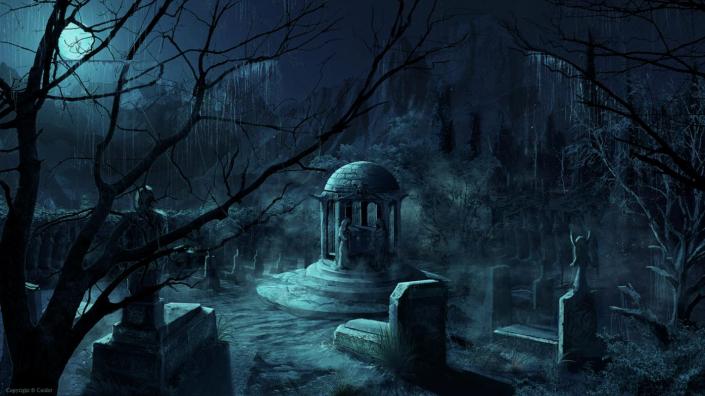
Prince Saif’s tomb in the Royal Cemetery
As she spoke, the marble tomb began to crack open, as if an invisible hand were pounding it with a giant pickaxe. Thud, crack, split – until finally, through the gaping rent on the marble surface, deep from the damp earth below, enveloped in a silvery-purple mist, arose a skeleton – Prince Saif’s remains.
The skeleton hovered over to where Badr Jamal stood, and collapsed in a heap at her feet. Badr carefully collected the bones and wrapped them in a piece of cloth, which she fastened to her back along with the other odds and ends she carried. Then she took off, without looking back, leaving the vandalized grave to magically repair itself as if nothing had happened.
Flying towards Paristan, Badr Jamal had tears in her eyes; she knew she would never return to Egypt again. She would never see her children or grandchildren again. But at least she had recovered some part of her beloved, something she could touch and feel and remember him by. And that gave her consolation.
Badr passed the rest of her days in Paristan, among her own people – among her brothers and sisters and childhood friends, in that strange and fantastical land where the beasts spoke and the trees walked and the sun changed color everyday.
She never aged, never displayed so much as a wrinkle on her luminous, moon-like face; for in Paristan, nobody ages from the outside, remaining in the prime of their youth till the day they die. As for Prince Saif’s skeleton, she strung some of the smaller bones into a necklace, which she wore at all times. The rest of the bones she stored in a gilded chest in her bedroom.
Thus Badr Jamal lived for another 100 years, until finally, her time also came. On that day she was swimming in her favorite lake, high up in the snow-clad Himalayas in the shadow of Malika Parbat, as she used to do as a child and as a prisoner of Deo Safed’s, so many years ago.
-

Lake Saif-ul-Malook at night
There she was, floating on her back in the dark, velvety waters, looking up at the spectacular, star-studded night and a radiant moon that bathed the mountains below in a soothing silver light. In that moment, Badr was perfectly happy. She was at peace.
All of a sudden, there was a flash of light – a blue fire that burst forth from her person – and she was gone. Nothing but ashes remained, floating on the blue, murmuring water.
We don’t know where fairies go after they die. We don’t know if purgatory and paradise exists for fairies the same as it does for humans. But we hope that it does, so Badr -ul-Jamal could be reunited with her beloved Saif, and they could look down together at this strange, fantastical drama we call life.
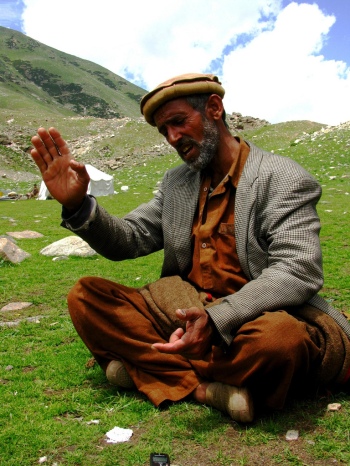
This entry was posted in Adventure, Legends, Love, Magic, Pakistan, Stories, Travel, World and tagged Adventure, Ansoo, Badr, China, Deo Safed, Deosai, Egypt, Fairy, Fairy Meadows, Folklore, Gilgit, Himalayas, India, Jinn, Kaghan, Koh Kaaf, Lake, Legend, Magic, Moon, Moses, Mountains, Nanga Parbat, Pari, Paristan, Persia, Peshawar, Saif, Saif-ul-Malook, Silk Route, Solomon, Story, Sufi, Turkey.
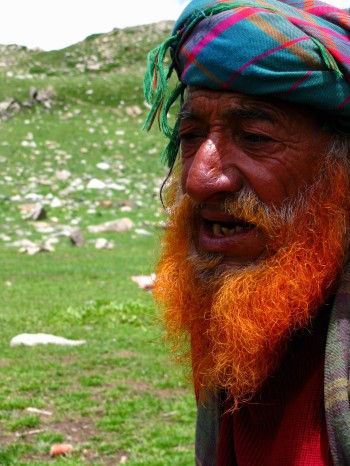
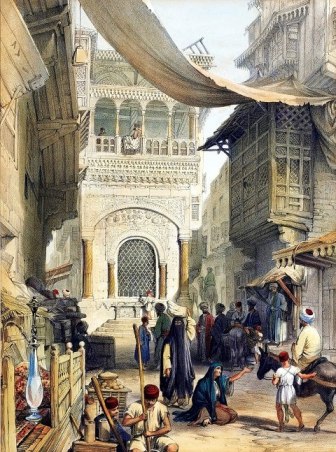
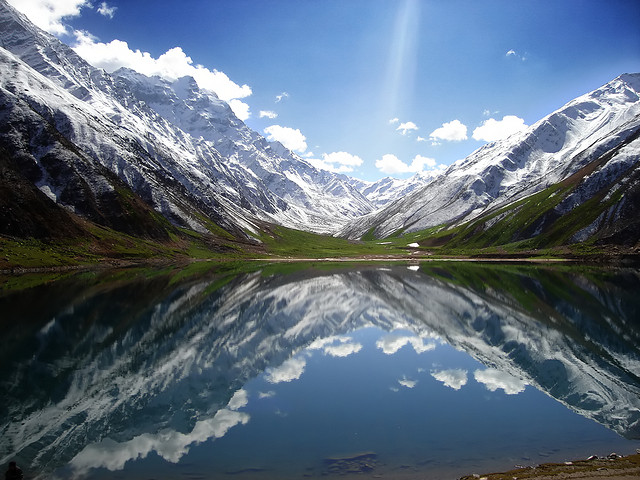
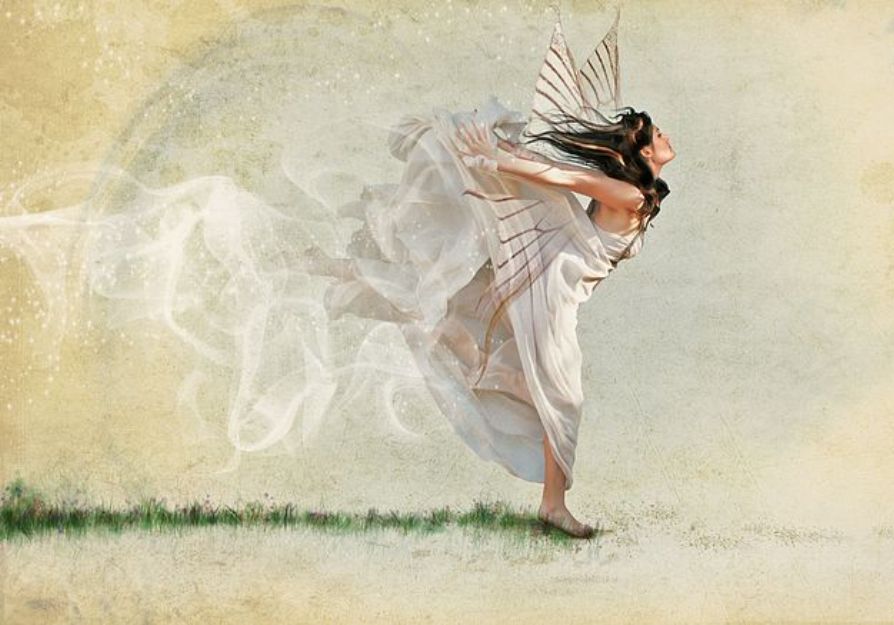
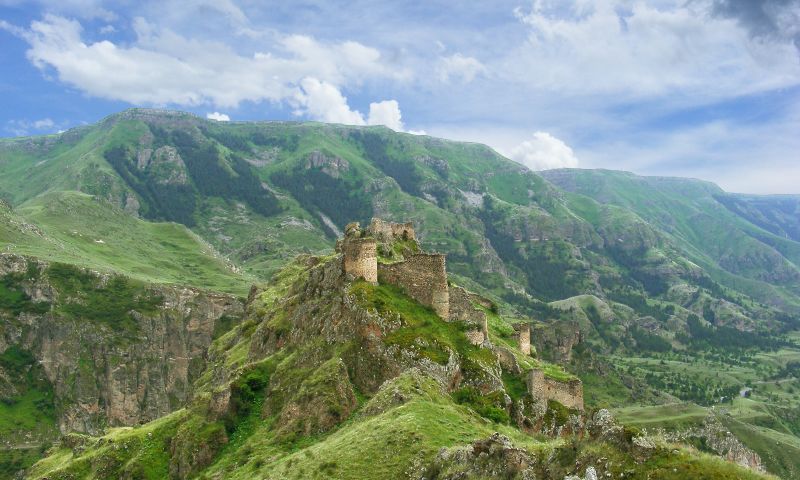

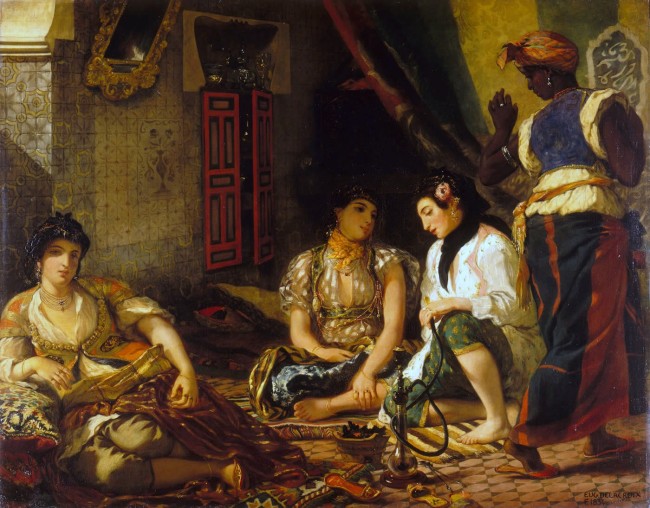
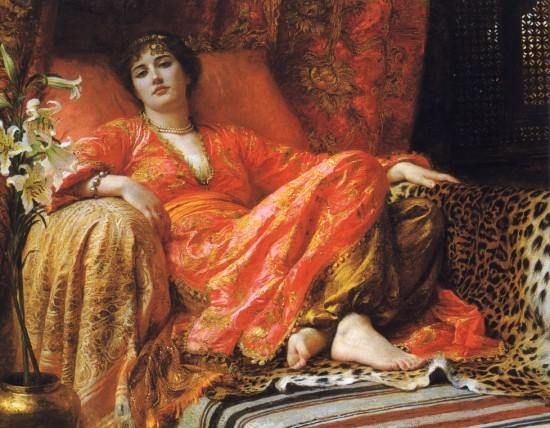
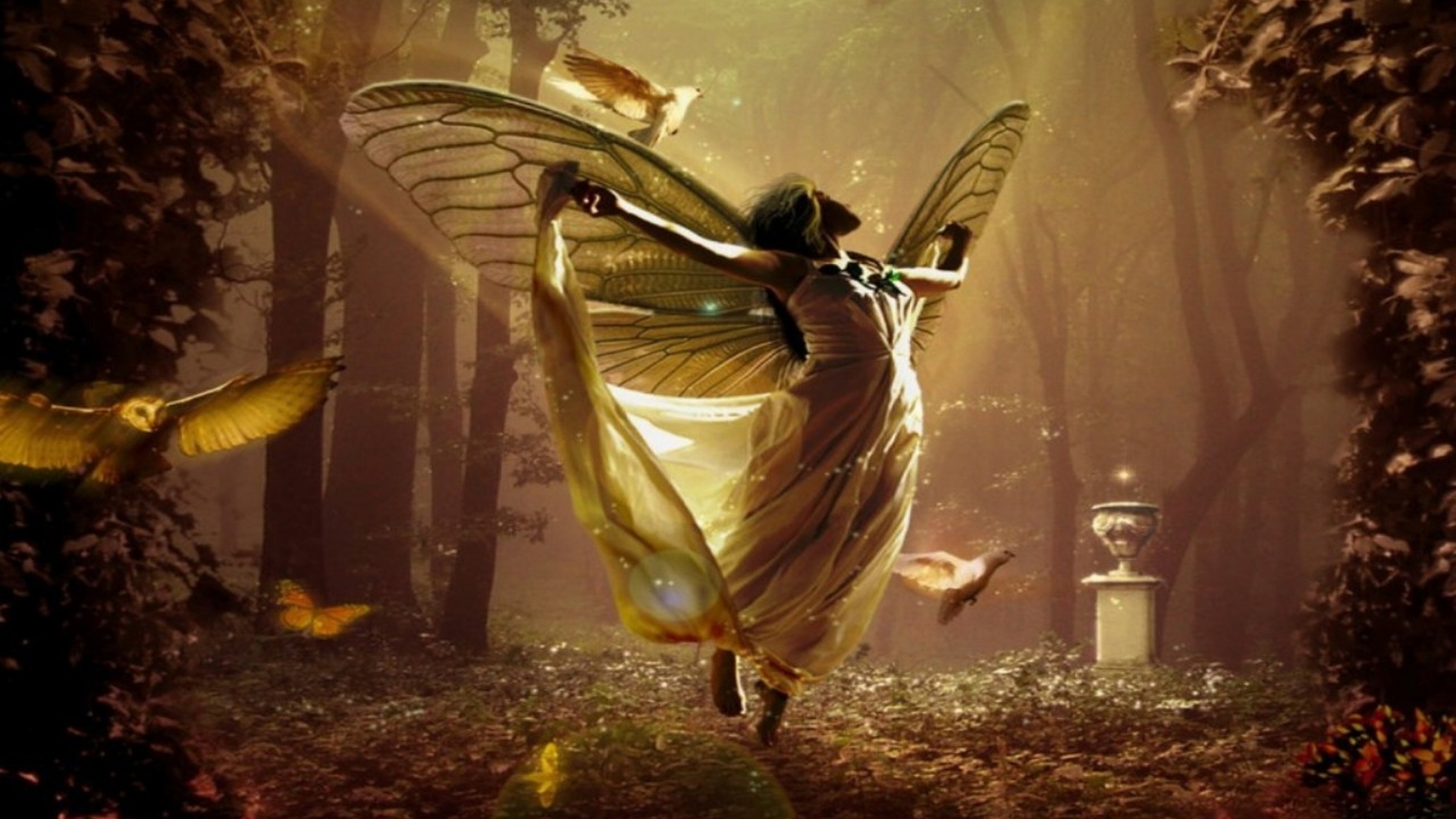

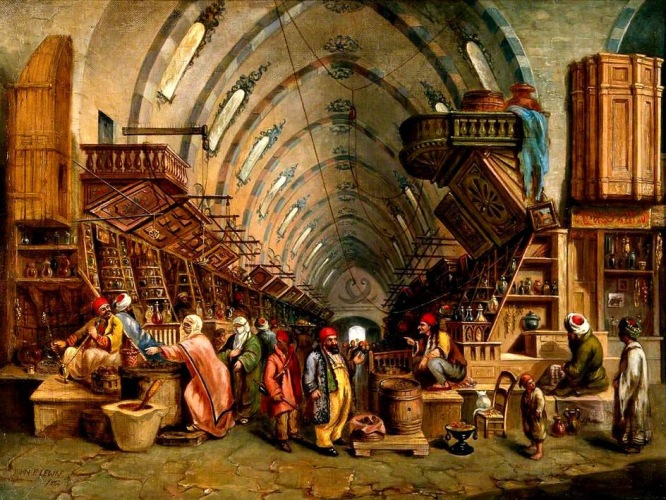


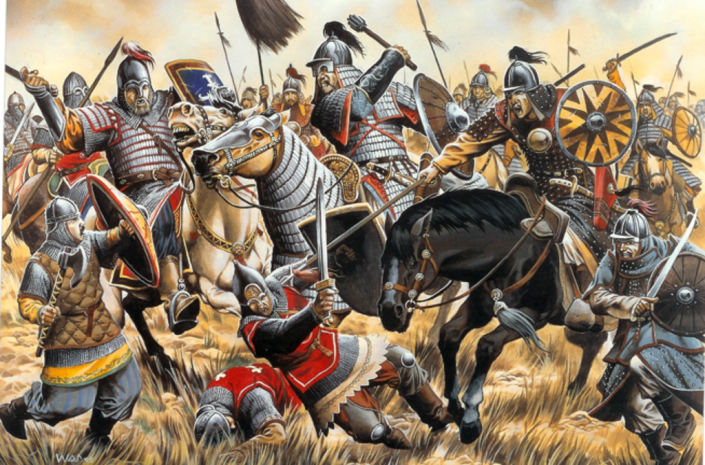
November 4, 2023 at 6:50 pm
Dear Manal, the story is enthralling and your writing style is immaculate. I have read this legend before in other blogs but this is by the best rendered and the most lengthy version. I just wanted to know how much of this is your own twist/spin on it, and how much of this was narrated to you by the source -you have put a picture of ‘the storyteller’ but not his name, could I know his name? Did he narrate all this to you ‘as is’, or was this in some part your own imagination? I would be grateful if you tell me which parts were your own input?
September 28, 2023 at 12:58 am
What a lovely story. I am planning to paint it. Will post when I do.
October 27, 2022 at 4:02 am
Beautiful story ……
November 13, 2021 at 10:39 am
[…] Je to příběh o princi Saif-ul-Malookovi a víle Badr-ul-Jamal, příběh o lásce, dobrodružství, víře, kouzlech, utrpení i zradě – příběh o vášních lidského pokolení. Existuje několik různých verzí. Původní verze je veršovaná a jejím autorem je súfijský mystický básník Mian Muhammad Bakhsh (1830 – 1907), který žil v Kašmíru a psal v paňdžábském jazyce. Cesta lásky (Safarul ‚Ishq) je považovaná za jeho mistrovské dílo. Následující verze je víceméně věrný přepis vyprávění místního vypravěče s trochou té spisovatelské (a překladatelské) svobody. (Anglický originál ZDE) […]
November 13, 2021 at 9:29 am
[…] Je to příběh o princi Saif-ul-Malookovi a víle Badr-ul-Jamal, příběh o lásce, dobrodružství, víře, kouzlech, utrpení i zradě – příběh o vášních lidského pokolení. Existuje několik různých verzí. Původní verze je veršovaná a jejím autorem je súfijský mystický básník Mian Muhammad Bakhsh (1830 – 1907), který žil v Kašmíru a psal v paňdžábském jazyce. Cesta lásky (Safarul ‚Ishq) je považovaná za jeho mistrovské dílo. Následující verze je víceméně věrný přepis vyprávění místního vypravěče s trochou té spisovatelské (a překladatelské) svobody. (Anglický originál ZDE) […]
September 5, 2018 at 12:30 am
You have told the story so beautifully that i was unable to stop reading it. May Allah bless you. Proud to be a resident of beautiful and awesome country Pakistan. Live long 🇵🇰
July 11, 2018 at 9:00 am
Wow! So lovely story. I liked it. But was it really true that Fairies, Giants and Jinns existed in the true story? Was there really a prince Saif-ul-Malook and fairy princess Badr-ul-Jamal? I can’t believe it!
May 25, 2016 at 3:50 am
Thank you thank you thank you. I’ve been waiting for this post for nearly a year now (even though it felt like eternity). I used to open your blog every few weeks only to be disappointed again and again. I had almost lost hope, I thought you were too busy. Thank you for taking out time to write this, thank you for being a wonderful storyteller, thank you for being ‘you’.
May 25, 2016 at 10:08 am
thank you so much! that means a lot. but i’m so sorry you had to wait so long :(
May 25, 2016 at 11:35 pm
No problem, it was worth it.
April 27, 2016 at 8:33 am
Hey Manal, absolutely loved the story and your retelling of it. I first heard about Saif ul Malook when I listened to a song by Hans Raj Hans which goes by the same name. Google search landed me on your article. I’m from Mumbai and I’ve been wanting to visit pakistani Himalayas since a long time. Reading this story has increased my yearning so much (almost as much as Saif himself ;) ). But being from India, I know it is going to be difficult. But happen it will. Inshaallah. (If only I can find that buzurg ;)
April 27, 2016 at 10:29 am
Thank you for your kind words! I’m so glad you enjoyed the story. And one day you will definitely get to visit, and hear the story from the storytellers at Saif ul Malook themselves :)
February 24, 2017 at 3:32 am
Hi Manal. Having visited the Lake when I was a Pilot in the Pakistan Air Force from 1950 till 1963, with 10 of my other course mates, led by the then Sqn Ldr Masood. It was a memorable experience, & our leader offered a prize to the first Cadet who could recite the words to the then National Anthem of Pakistan. I learned it by “rote” not even understanding what the words really meant. Somehow I won the prize. As the thought of the lake & it’s story came to me, I did a Google search, & learnt so much more about it’s history. My initial question was about the depth of the lake, as there were so many different stories, that I had to go into it in more detail for myself. Having satisfied myself about it’s history, how fortunate am I for having visited the lake, & I will remember the experience for the rest of my life. Thank God.